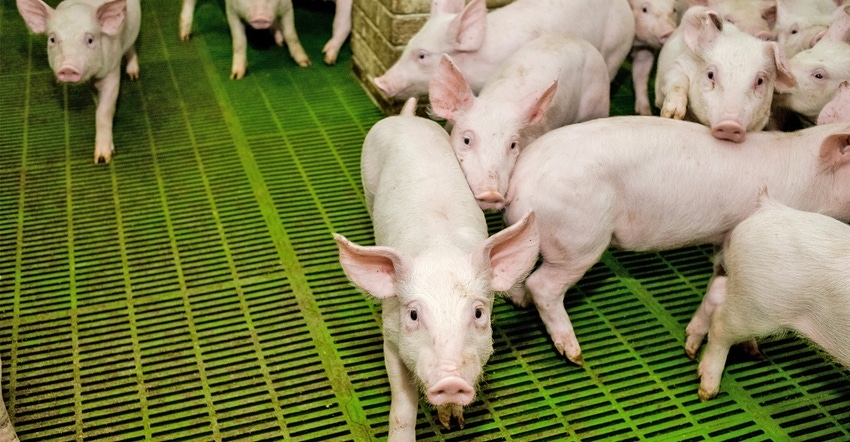February 22, 2017

A series of meetings aims to help pork producers be prepared, should a vesicular disease strike their operation.
According to University of Missouri Extension veterinarian Corinne Bromfield, the Seneca Valley virus (SVV) disease is on the upswing in the United States, compared to previous years. The Swine Health Information Center reported that diagnostics labs had seen more than 60 cases of SVV from January to June 2016. They reported only 20 cases in the previous 30 years.
The virus runs in the same family as foot-and-mouth disease and swine vesicular disease virus. It causes vesicular lesions in pigs. The gross lesions mimic the symptoms of other diseases, such as foot-and-mouth disease. Fluid-filled blisters appear on the inside of the pig's mouth, snout and the "V" of a pig's coronary band. The blisters are fragile and may rupture before they are noticed. Lesions may crust. Lameness occurs frequently.
Act immediately and use common industry biosecurity measures if you suspect SVV on your farm, Bromfield says.
Producers who suspect SVV or any foreign animal disease should immediately call their veterinarian to have him or her contact the Missouri Department of Agriculture's state animal health veterinarian. Visual diagnosis is not possible, Bromfield says.
Work with your veterinarian to send samples to the MU Veterinary Medical Diagnostic Lab. The lab is one of two Level 2 National Animal Health Laboratory Network labs in Missouri. Results return within 24 hours. Go to vmdl.missouri.edu to learn more.
If you suspect the presence of the disease, quarantine animals and halt movement of anyone who has been near the hogs. Do not market pigs with active open lesions, Bromfield says. No vaccines to treat SVV exist.
"Keep it off your neighboring farms. Contain it and treat it," Bromfield says. "Don't be complacent."
If it is foot-and-mouth disease instead of SVV, follow the same control methods. Foot-and-mouth disease can infect pigs, cattle, sheep and goats. Humans do not contract it.
Producers can learn more at "Preventing and Responding to Disease Outbreak" workshops in March. MU Extension offers the one-day workshops at five locations in Missouri:
• March 13, Neosho, Crowder College Ag Building
• March 14, Buffalo, O'Bannon Community Center
• March 17, Jackson, MU Extension office
• March 20, Sedalia, State Fair Grounds, Pork Place
• March 24, Kirksville, Conservation Department
All sessions are from 9:30 a.m. to 3:15 p.m.
For registration form, visit MU Extension. For more information, contact Misty Grant at 573-882-2731 or [email protected].
Source: University of Missouri Extension
You May Also Like




